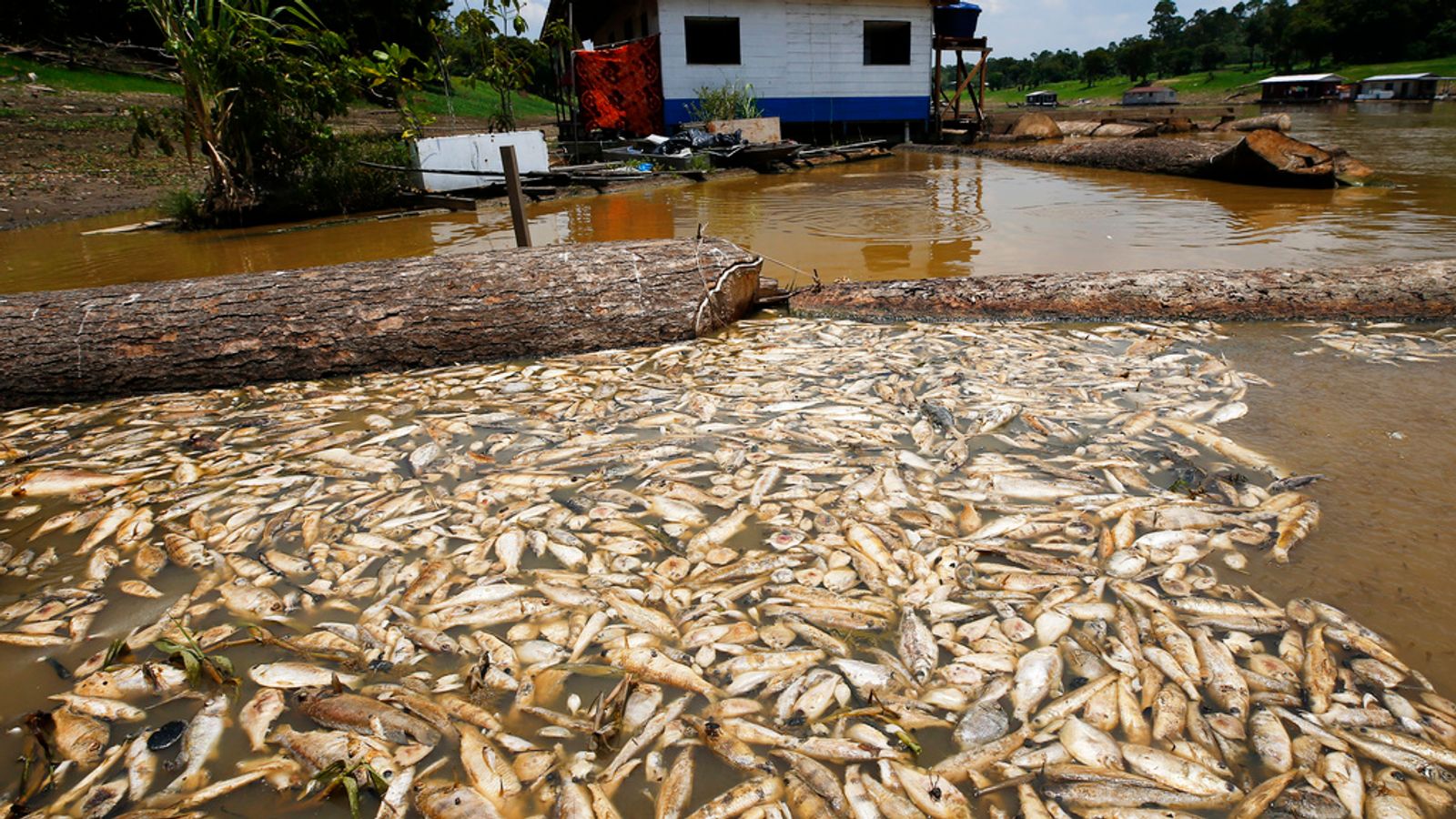More than 100 dolphins and thousands of fish have been found dead in the Brazilian Amazon as drought and record-breaking high temperatures grip the region.
Experts said the temperature of the water in some parts of the Amazon reached a record 39C (102F) and believe the conditions are making it increasingly difficult for wildlife to survive.
Scientists at the Brazilian government-funded research facility, the Mamiraua Institute, said the dolphins had been found in Lake Tefe, in the northern part of the country.
The institute told CNN: “It’s still early to determine the cause of this extreme event, but according to our experts, it is certainly connected to the drought period and high temperatures in Lake Tefe, in which some points are exceeding 39C.”
Experts fear there could be further dolphin and wildlife fatalities with the severe drought conditions expected to continue into the next couple of weeks.
It comes as dead fish have been piling up in some rivers winding through Brazil’s Amazon rainforest.
The drought has led water levels to fall, making it more difficult for people to access food and drinking supplies.
Officials said the dead fish has rotted and contaminated water supplies, affecting more than 110,000 people.
In Brazilian city Manacapuru, there were reports of fish seen jumping in an attempt to escape the scorching, shallow waters.
Caroline Silva Dos Santos, who works in a shop in Manacapuru, said: “It is difficult because of the contamination of the water, we need a lot of it to bathe.
“And we also drink the water, but because it is contaminated we’re not drinking it.
“We’re getting water by bringing it from the city.”
Read more:
Why it is so important to protect the Amazon
‘Global warming could eventually wipe out humans’
Scientists say the region is under pressure from the El Nino weather phenomenon – which forms in the Pacific Ocean and contributes more heat to a warming world – with the volume of rainfall in the northern Amazon below the historical average.
The Amazon Working Group, which represents 503 organisations, said the water level along one tributary of the Amazon River has been dropping by 20cm (8ins) a day.
Ane Alencar, science director at the Institute for Amazonian Environmental Research, who believes climate change is having a big impact on the region, said: “I think it is already a reflection as to what may be the new normal that we are going to be facing in the future.
“People will lose their goods, homes, cattle. We usually neglect the impacts of drought on human life and health.”







